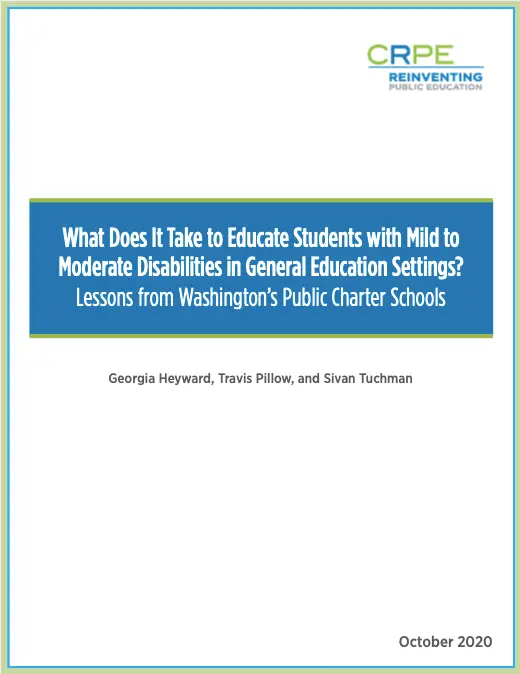Including students with disabilities in general education settings has potential benefits on academic outcomes, but it can be difficult to implement well. It has been particularly elusive for Washington State, where fewer than six in ten students with disabilities spend their day in general education settings—the eighth-lowest rate in the country.
To identify promising strategies for full inclusion, CRPE and the National Center on Special Education in Charter Schools conducted in-depth case studies of five Washington State charter schools as part of a national study of special education in charter schools. These studies were conducted during the 2018-19 school year, but we also conducted follow up interviews in the summer of 2020 to understand how the schools were responding to the pandemic. Through our interviews, we identified strategies that were core to student learning prior to COVID-19 and that remained constant even as schools moved to remote instruction last spring. The approaches these five schools have taken may hold promise for other schools:
- A single point of contact for every student.
- Intensive focus on social-emotional well-being.
- Parent partnerships.
- Meaningful and customized learning.
The case studies also point to challenges that school leaders and policymakers can learn from, including teacher capacity, school scheduling, and funding. Our report offers recommendations for Washington State school leaders and policymakers to find a path forward for better educating Washington’s students with disabilities.
Recommendations for Charter and District School Leaders
- Support general education teachers.
- Consider co-teaching and flexible supports.
- Prioritize good instruction, informed by data.
- Collaborate with other schools and agencies.
Recommendations for Washington State Policymakers
- Make funds available to the schools that need them.
- Support capacity building in all public schools.
- Give district schools flexibility.
- Support funding equalization and facility access for charter schools.






